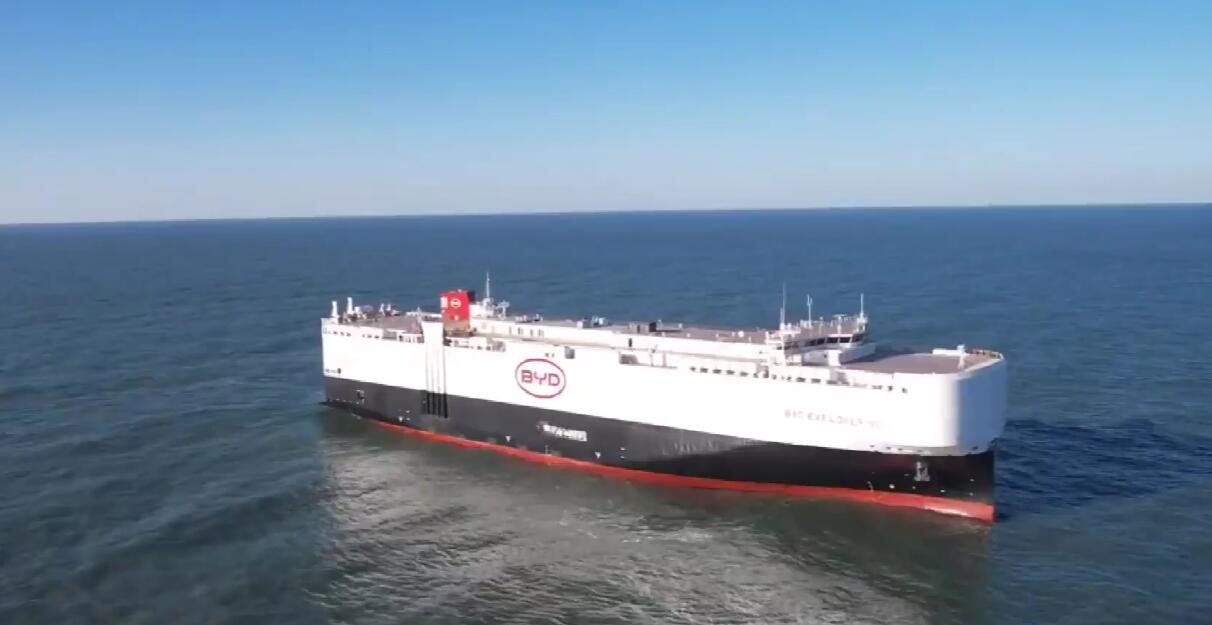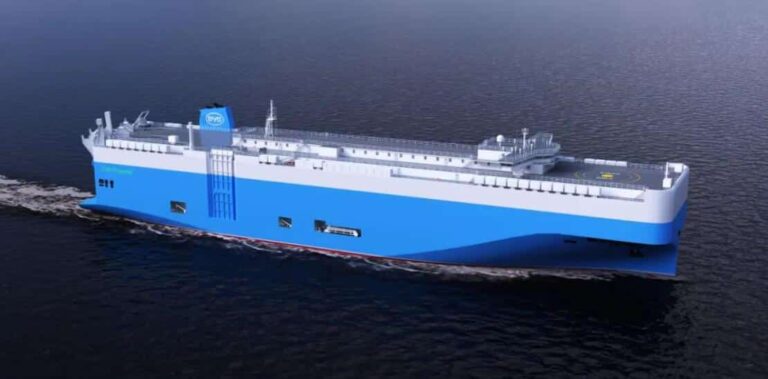BYD's roll-on/roll-off car carrier Explorer 1 has completed its first 7-day sea trial in Yantai, Shandong province.
BYD (OTCMKTS: BYDDY) may be getting its own car carrier sooner than many had expected.
BYD's roll-on/roll-off car carrier Explorer 1 completed its first 7-day trial voyage in Yantai, Shandong province, a semi-official Weibo account for the company, @小迪快报, said today.
The account didn't offer any further details, but shared a short video showing the BYD car carrier with the words "LNG Powered" printed on its side.
This is the latest development in BYD's efforts to build its own car carriers, and the first time its completed vessel has been revealed on social media.
Over the past two years, BYD has been rumored several times to be building its own car carriers to support its growing new energy vehicle (NEV) exports.
On October 29, 2022, local media outlet Caixin, citing multiple sources, said a BYD affiliate would order eight ro-ro vessels with a capacity of 7,700 cars at a shipyard in Yantai, at a total cost of nearly 5 billion yuan ($700 million).
BYD basically determined that six of the ships will be built, with two more under option, according to the Caixin report last year, which did not mention the Yantai shipyard by name.
On January 23 this year, Guangzhou Shipyard International Company Limited (GSI), a subsidiary of China State Shipbuilding Corporation (CSSC), said it had been awarded two pure car/truck carriers (PCTCs) by BYD.
The two dual-fuel PCTCs, which can be powered by LNG or fuel oil, are each capable of carrying up to 7,000 vehicles, GSI said in January.
Last month, GSI announced that the first vessel it undertook to build for BYD started work on November 6 in Nansha, Guangzhou.
The vessel has a length of 199.9 meters, a beam of 38 meters, a design draft of 9 meters and a design speed of 18.5 knots (34.26 kilometers per hour), according to the GSI statement.
BYD sold 301,903 NEVs in November, up 31.02 percent year-on-year and essentially unchanged from 301,833 units in October, according to data it released on December 1. In the January-November period, it sold 2,683,374 NEVs, up 64.8 percent year-on-year.
In November, BYD sold a record 30,629 NEVs in overseas markets, up 148.65 percent year-on-year and essentially unchanged from 30,521 in October. It sold 206,670 NEVs overseas in the January-November period.
($1 = RMB 7.1387)



